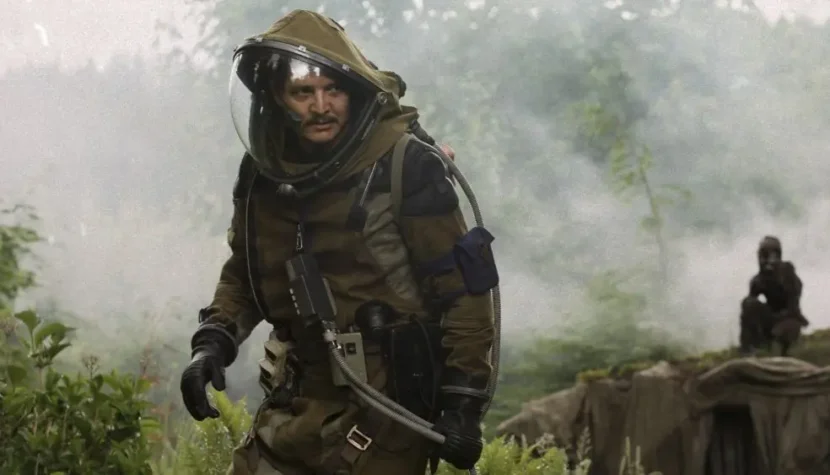PROSPECT. An excellent blend of science fiction and western

It’s astonishing that such excellent and fresh science fiction like Prospect went almost unnoticed.
In the future, humanity reaches the stage of interplanetary travel and explores other worlds in search of resources. Damon and his teenage daughter Cee are independent prospectors who land on the forested moon of Bakhroma Green to mine precious gems. The moon is inhospitable, with almost its entire surface covered by dense jungle and toxic spores circulating in the atmosphere. During their descent, their capsule malfunctions, forcing Damon and Cee to land far from their planned destination. The prospectors encounter two other treasure hunters, Ezra and his companion, who intend to rob Damon and Cee. Damon makes the robbers an offer: he will lead them to a hidden excavation site rich in gems, where they can divide the loot and go their separate ways. However, the plan becomes complicated.

It all started with the fifteen-minute film Prospect (2014), directed by Zeek Earl and Chris Caldwell with $21,000 raised on Kickstarter. The film’s success at the SXSW film festival provided the young creators with the financial means to expand Prospect into a full-length feature: Canadian studio BRON Studios invested just under $4 million for this purpose. Caldwell and Earl transformed old shipyard warehouses in Fremont into a kind of workshop where, for seven months, a team of industrial designers, carpenters, mechanics, and cosplayers worked on space capsules, costumes, and prop weapons. Filming lasted about 40 days, with outdoor scenes shot in the Hoh Rainforest on Washington’s Olympic Peninsula. The cast included Sophie Thatcher (Cee), Jay Duplass (Damon), and Pedro Pascal (Ezra).
Considering the budget limitations, the results are impressive. Bakhroma Green truly feels like an alien world—impenetrable, dangerous, and at the same time fascinating. It feels like part of a larger universe that you’d like to know more about. Viewers are thrown into this world without explanation, just like the film’s characters (especially Cee)—we never know what might happen to them on the forested moon (are there alien life forms?) or what motivations the characters they encounter will have (will they help or harm?). The film is also free of the pseudo-philosophical babble and pseudo-scientific absurdities that have bogged down many science fiction productions (see: The Black Hole (1979) by Gary Nelson and Interstellar (2014) by Christopher Nolan). Because of this, Prospect captivates from start to finish.

If you strip Interstellar of its science fiction trappings, Nolan’s film collapses into a sappy melodrama. What happens when you strip Prospect of its science fiction setting? What emerges is… a western—and more of a revisionist one at that, rather than a traditional one. We have the unexplored frontiers of the universe reminiscent of the Wild West, a survival theme in harsh conditions, a gold rush (here replaced by the alien secretion “aurelac”), constant negotiations and intrigues, a lack of clear distinction between good and evil, and character development: a strong female protagonist (Cee) and a morally ambiguous but likable antihero (Ezra). And it all works like a well-oiled machine. Unfortunately, the public didn’t recognize the brilliance of this film: Prospect grossed only $22,000. If it were Barbie or some other overhyped garbage, it would probably have made billions.

